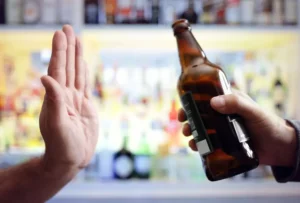
The time spent on a relationship could be spent setting up that foundation. We are used to instant gratification when using substances, but we are trying to live differently. Early recovery is the time to get to know what our values and boundaries are, what we like, and dislike. If we have not relationships in recovery spent any time getting to know ourselves, we cannot know what our boundaries are or how to enforce them. It’s a time for rebuilding our lives which can also add stress to a new relationship.
Keywords

No matter what stage our guests enter treatment, we strive to meet them right where they are. Decode the different types of eating disorders, their impacts, and treatments in this comprehensive guide. Discover Trump’s revolutionary approach to drugs policies, from marijuana to opioid crisis management. Discover serene sober vacation ideas and transform recovery into an adventurous journey of tranquility. Explore the four Xanax side effects hiding in the shadows, and understand the risks of addiction.
How to Address Shame and Embarrassment in Addiction Recovery
In addition to verbal communication, non-verbal cues play a significant role in conveying emotions and messages within recovery relationships. Components such as body language, tone of voice, and facial expressions can often communicate more than words alone, as noted by Better Health Victoria. Explore five dangerous designer drugs and their risks, from addiction to overdose, for a safer path to recovery. Discover evidence-based approaches in contingency management for addiction treatment. Explore the sober curious lifestyle, its impact on health and social norms, and steps to embrace it. Discover the six common roles family members of addicts play and their impact on recovery and healing.

How to Manage Social Media and Technology During Recovery
While some relationships are based on circumstances over which you have little or no control, you do have choices in establishing relationships that provide support and nurture you. Cultivating and maintaining supportive relationships takes time and energy. It requires effort, along with the strength and courage to step outside of one’s comfort zone. Like developing a healthy relationship with others, becoming your own best friend is a process that takes time and dedication.
The Benefits of Outdoor Activities in Addiction Recovery
- If you’re in recovery for SUD, here’s how you can try to make amends with loved ones whose trust was bruised during addiction.
- This blog post will review five vital relationships in recovery, including those with a peer-support network, a sponsor, a higher power, society and a relationship with oneself.
- One of the most helpful things you can do is open up to the people closest to you about your past, mistakes, tendencies, and plans to stay healthy.
- Numerous programs and resources are available to support individuals in nurturing effective communication techniques (Resolute Recovery).
- Each of us has to make our own decisions regarding our recovery, what we want, and when we feel it’s the right time to start a relationship.
Acknowledging one’s role in the rupture without defensiveness or excuses is key to rebuilding trust (Gottman, 2011). Dr. Sue Johnson emphasizes the importance of creating emotional safety in relationships. Emotional safety begins with empathy, as it reassures both partners that their feelings matter (Johnson, 2019). By curating your relationships with intention, you can create a network that fuels your personal and professional growth. Let 2025 be the year you prioritize progress, positivity, and meaningful connections.
The Problems of Getting Insurance Coverage on Drug Rehab
Their heightened vigilance stems from concerns about disease recurrence, with the aim of detecting signs of recurrence as early as possible through close monitoring of symptoms. One of Gottman’s key insights is the value of creating shared meaning in relationships. Creating a shared vision helps couples move from the pain of the past to the hope of the future (Gottman, 2011). For those who alcoholism choose to work through the rupture, it’s important to acknowledge that the relationship will never be the same. However, something meaningful can emerge from the pain if both parties are committed to healing. Below are four strategies to guide couples toward healing and deeper intimacy.
Building Healthy Relationships in Recovery

Tools like cognitive-behavioral therapy (CBT) and mindfulness practices are frequently used to strengthen resilience during this journey. Sobriety often necessitates a shift in social circles and environments to avoid triggers and temptations. This change can create an environment where both individuals in recovery and their loved ones are committed to supporting each other’s well-being.
How to Maintain Long-Term Sobriety and Avoid Relapse
Disparities in navigating challenges were further underscored by differences in the recollections of their ICU experiences (gap in memory). Survivors and caregivers noted each other’s inability to fully empathize with their respective experiences, sometimes leading to avoidance of communication. The findings suggest that ICU survivors and caregivers experience overlapping yet distinct challenges during recovery, often involving shared coping strategies, alongside a need for individual space. These results support the presence of both interactivity and independence in recovery challenges and coping strategies for ICU survivors and their caregivers. Rebuilding trust and rapport with loved ones https://ecosoberhouse.com/ after addiction recovery is a gradual process that hinges on consistent effort and open communication. Family therapy plays a vital role, addressing underlying issues that may have strained relationships while fostering mutual understanding among family members.

Various support groups, including Alcoholics Anonymous (AA), Narcotics Anonymous (NA), and SMART Recovery, play a pivotal role in facilitating peer connections. Each offers unique benefits, whether through structured meetings, shared experiences, or science-based strategies aimed at self-empowerment. This connection encourages open communication, allowing individuals to freely discuss their thoughts and feelings.
- Therefore, informing people to whom you are becoming close that you don’t drink alcohol or use other drugs—sooner rather than later—will help you avoid many risky situations.
- Dating during early sobriety can present significant distractions from recovery efforts.
- Healthy relationships thrive on accountability and shared responsibility.
- Some partners may engage in enabling behaviours whereby they cover up for the person living with addiction.
- As isolation fuels addiction, recovery depends on forming positive social connections with others.
- However, such avoidant coping (e.g. caregivers craving respite) may buffer against the distress that is contingent upon difficulties, which is consistent with evidence from other chronic conditions 16, 74.
- We live in our own head all day long – which is why we should make it a pleasant place to be!.
Practice active listening, express your thoughts and feelings honestly, and show genuine interest in the lives of others. Good communication can deepen connections and help you build a strong support network. Narratives from both ICU survivors and caregivers emphasized the growing chasm in their social relationships, whether spatially or emotionally. Building a robust support network involves engaging with sponsors, therapists, and understanding family and friends who provide emotional and psychological backing. The importance of shared experiences within these communities encourages openness and understanding among members.



